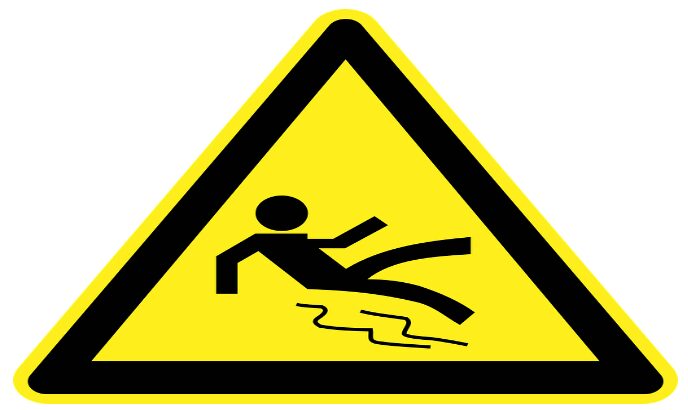Hearing Loss Increases Fall Risks

To maintain body equilibrium, the brain coordinates input from the eyes and ears and from sensors located throughout the body in the muscles and bones. While normal hearing supports the brain’s balance function, hearing loss has a destabilizing effect and becomes a safety issue.
According to Johns Hopkins Medicine, even a mild hearing loss can increase the risk for falling three-fold. As hearing loss worsens, fall risks increase dramatically.
Hearing loss upsets the brain’s balancing act
Balance and hearing are the two functions of the inner ear. The inner-ear vestibular (balance) organs provide the brain with information on body position and motion. Normal hearing supplies balanced sound input from both ears, which has a stabilizing effect on the brain. Also, normal hearing verifies what we hear with what we see.
However, due to hearing loss inaccurate and misleading sound messages are sent to the brain. Sounds may be weak, unclear, and distorted. The brain becomes overwhelmed as it tries to reconcile the confusing sounds and feedback from the ears. As brain power is diverted, balance suffers and the risks for trips and falls rise.
Those whose hearing loss is complicated by sound sensitivities may be startled and thrown off balance by noises that are perceived as being a lot louder than they actually are. Also, fall risks increase for those who hear a lot better in one ear than in the other. Such uneven hearing makes it difficult to tell the direction of sound. People get a distorted sense of their environment. What we see and what we hear may contradict each other. Such disruptions interfere with the brain’s balance decisions, which easily leads to falls and other accidents.
Can hearing aids help?
It all depends. Some studies say yes, while others are not so sure. Yet, it makes sense that sound corrections from perfectly fitted & tuned, and consistently worn hearing aids could assist the brain with its hearing and balance coordination. But are such ideal circumstances always the case? This shows that more data must be obtained in order to get clearer, more definitive answers and better guidance.
It will be interesting to see if OTC hearing aids might help reduce fall risks for adults with mild to moderate hearing loss. After all, now people can make their own adjustments and tune their hearing aids to their own satisfaction without the often-cited travel frustration for return clinic visits. Only time will tell.
In the end,
The fact that hearing loss increases fall risks is yet another reason why people should follow up on hearing issues, starting with a comprehensive hearing test. It certainly stands to reason that improvements in sound perception and hearing ability will help the brain manage its delicate balancing act between hearing and equilibrium. Although we are short on clear-cut answers, it also makes sense that we should follow through with our hearing aid tuning sessions and give this technology a chance.